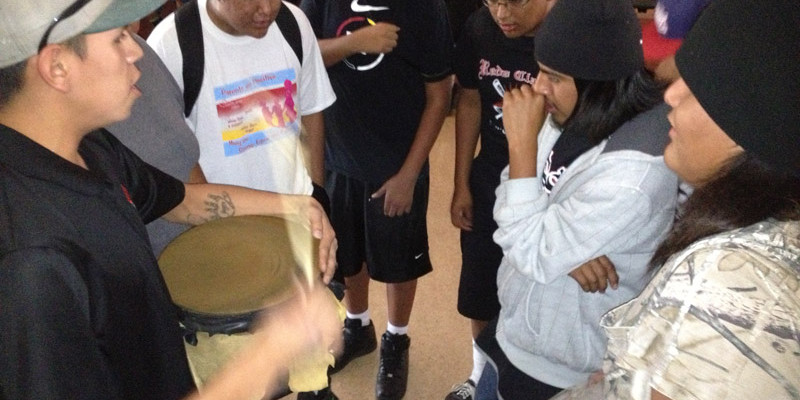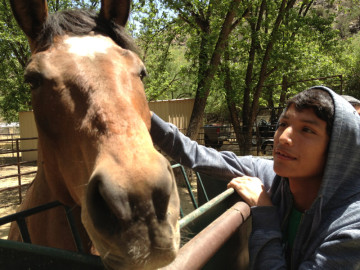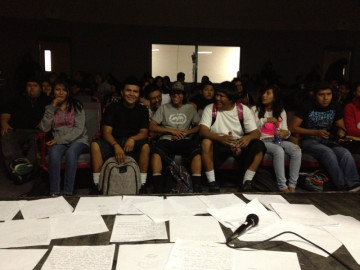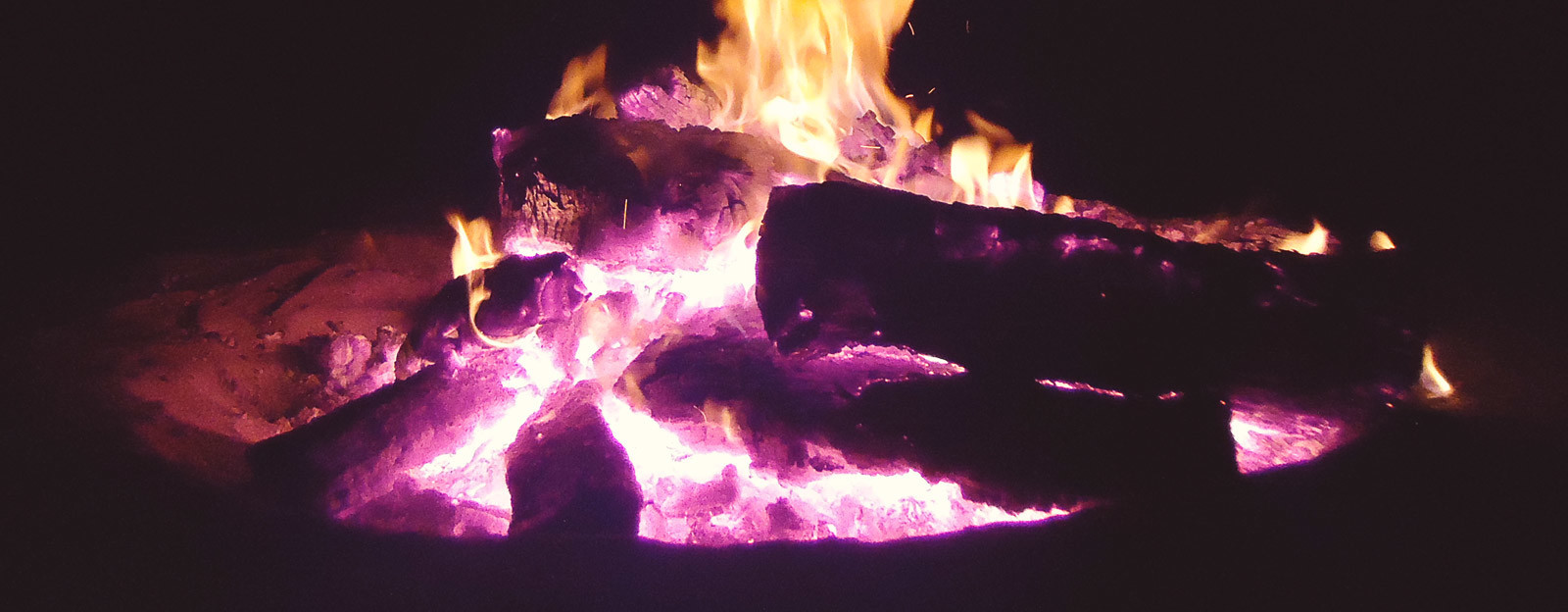Street Poets on the Apache Rez
When Street Poets first steps onto the San Carlos Apache high school stage, we are met with a wall of indifference that feels more like a muffled scream. “Why are you here anyway?” seems to be the question lying behind the students’ eyes.

When Street Poets first steps onto the San Carlos Apache high school stage, we are met with a wall of indifference that feels more like a muffled scream. “Why are you here anyway?” seems to be the question lying behind the students’ eyes. We respond in the universal language of poetry, in waves of words, verses lifted from the depths of our own wounds and those of our ancestors – mining the darkness for a spark of truth to inspire a response, a connection, a conversation. Jason, a former gang member from South Central LA and a ten-year veteran of our program, brings his own story to light with this piece:
I remember
When my smiles became cries
When the truth became lies
When I cut all ties to myself
Swallowed by darkness
A slave to the block
I once walked in shock and fear
My pain sprayed through handguns
And cocaine-laced blunts
A passive-aggressive passenger
In a g-ride driven by death
But I remember most
When I chose to step
Out of the shadows
To breathe in the light of the sun
As the ocean washed away my sins
And restored my soul
When the earth took me into her womb
And made me whole again
I remember the wounded healer
Fire breather, true seer
I came into this world to be
I remember my heart
And now I’m free
“Do any of you have any questions about what you just heard?” We ask hopefully in the wake of the performance. A silence as thick as blood permeates the space between us and our reluctant hosts. Nervous laughter ripples across the room. We feel a grief as deep as any we’ve encountered lying there just below the surface.
For 15+ years, Street Poets has been harnessing the power of poetry and music to inspire Los Angeles’ most “at-risk” youth to bear witness to their own lives and dream a new world into being. We provide poetry and now drumming workshops to the young people in LA’s most underserved juvenile detention facilities and public schools, while hosting regular community open-mic events to help bring our fractured city together. We also run a recording studio that serves to amplify the authentic voices of our youth and young adults. Over time, our community’s personal wounds have become a gateway into the collective wounds of our American culture (particularly those around slavery and the treatment of Native American peoples). We’ve learned to rely on elemental rituals inspired by the teachings of West African elder Malidoma Some, as well as a monthly Lakota Sweatlodge, to help support this healing work.
Many of our Street Poets have said they would be dead if not for the ways in which poetry, music and ritual have cleared the way for them to reconnect with the healing power of the natural world. It is those stories that we have come to share with the youth on the Apache Reservation – many of whom have been separated from the lifeline of their own traditional ways by the worst of our modern American culture. Sadly, the Rez is plagued by the same substance abuse and gang epidemic that has ravaged the South Central community in which many of our Street Poets were raised. Today, Native-American Bloods and Crips play out the same suicidal dance of death that originated on the streets of LA and that has been glamorized by our entertainment industry. Because of this tragic legacy, we see it as our responsibility as Angelenos to help export the antidote to that disease – an antidote that we’ve found rooted in the creative process and in the indigenous cultures of this world.
 “I want to begin by honoring the power of your silence,” I offer to the group of Apache students now gathered around a table with blank sheets of paper and pencils before them. “I’d be happy to sit here with you all in silence for the next hour if that’s what you feel you need. But if that silence begins to speak, I invite you to pick up that pencil and write down what you hear.” Then I close my eyes and begin to breathe. When I open them five minutes later, every youth at that table is immersed in writing.
“I want to begin by honoring the power of your silence,” I offer to the group of Apache students now gathered around a table with blank sheets of paper and pencils before them. “I’d be happy to sit here with you all in silence for the next hour if that’s what you feel you need. But if that silence begins to speak, I invite you to pick up that pencil and write down what you hear.” Then I close my eyes and begin to breathe. When I open them five minutes later, every youth at that table is immersed in writing.
Over the next two weeks, a flood of poems pour from the pencils of our new students, traditional Apache songs are danced and recorded, tears are shed, and laughter is shared. Most importantly perhaps, a poetic dialogue begins — between two communities that share not only deep wounds, but powerful gifts capable of transforming our world into something in which we can all believe. This, in the end, is why we are here.

I know a girl who runs against the wind.
It whispers in her ear, telling her she can’t.
The strain in her legs screams out in protest. She speeds up.
Through dry hills covered with the toughest plants, she runs.
Hot on her heels is the past waiting to reclaim her.
Ahead, the desert valley stretches way beyond the horizon.
Her way lost long ago in the mad dash.
The loose rocks crunch under each footstep and then fling up
To ward off her pursuers even more.
A thin layer now covers her and adds a shine over her body.
Gasping for breath she reaches for freedom, wanting to go on.
Finally the blazing sun gets to her and her knees buckle.
Buzzing bugs greet her under a mesquite.
The sound of her heart rings in her ears.
She takes it all in.
Despite everything, this is where she feels most alive.
Among the creatures of her homeland.
But she knows it can’t last.
Sooner or later she’ll have to turn around and re-enter civilization,
But for now she smiles because she knows …
The wind has lost this time.
-Benita, age 16, San Carlos High School, Apache Reservation

